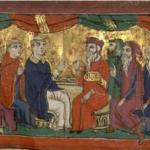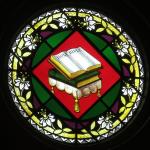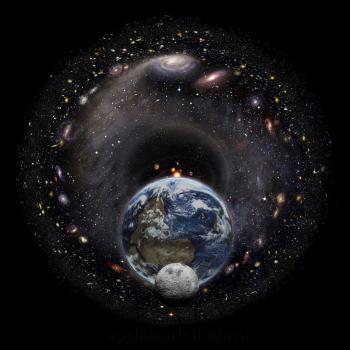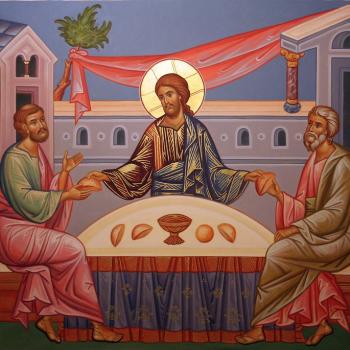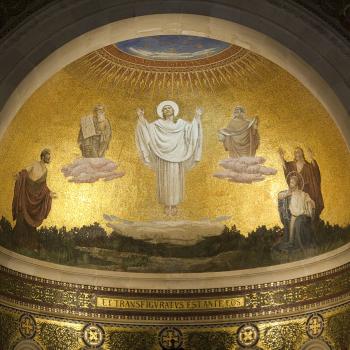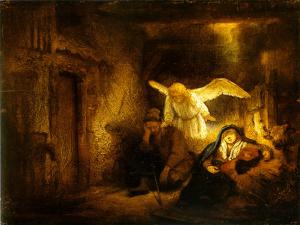 Saint Babylas of Antioch died during the Decian persecution. Legend has it that Babylas forbade his emperor from entering his church until the emperor did penance for killing his predecessor; for this, he was sent into prison, tortured, and died while before he could be officially executed. Preaching on the martyrdom of St. Babylas, St. John Chrysostom explained his boldness in the face of persecution:
Saint Babylas of Antioch died during the Decian persecution. Legend has it that Babylas forbade his emperor from entering his church until the emperor did penance for killing his predecessor; for this, he was sent into prison, tortured, and died while before he could be officially executed. Preaching on the martyrdom of St. Babylas, St. John Chrysostom explained his boldness in the face of persecution:
For he was instructed by the divine teaching that all worldly activities are a shadow, and a dream, and less significant than these. Therefore, none of this made him cower, but inspired him with greater fearlessness. The spectacle which he beheld directed his mind to the king above, who sits upon cherubim and gazes at abysses, to the glorious and sublime throne, to the heavenly host, to the myriads of angels, to the thousands of archangels, to the terrible tribunal, to the impartial judgment, to the river of fire, to the judge himself.[1]
History is real; the world is real; what happens in the world matters. That is what the incarnation teaches us. God became man; the eschaton became immanent. The world is of value. History is of value. What we do in the world matters. All of this is true, even if we can also recognize, with St. Babylas, that there is a dreamlike quality to our life. What we believe is history, what we believe is true about the world, is not history as it is, is not the world as it really is, but a constructed representation of reality created by our mind. What we know of the world comes to us from our mind, even as what we know in our dreams, comes to us from our mind. Our mind interprets the sensual data given to us, forming the means by which we understand the world. It is a mediated form of experience. Because of this, we do not see the world as it truly is. It is rare for someone to be able to program their mind to properly experience the inter-connected relationship between the things of the earth with the things of heaven. But that is what we need to do in order to be aware of the world as it is, to wake up from the illusory dream of the world and live and thrive in it as it truly is.
The world which we think exists does exist. We impute a truth to the world, a conventional truth which does not match the truth as it is in itself. This is what serves as the foundation of our dream. The dream is not mere fantasy, creating something out of nothing; it is rather a distortion of the truth, a veiling of the world as it is so that we engage the world in the way we think it is. Sin makes this worse. The dust of sin makes us sleepy, enhancing the distortions in the hermeneutical lens which we use to engage the world. It makes us think some things are more important than they truly are, even as it makes other things appear less important, indeed, insignificant, when they truly are important. The dreamland in which we live and experience is but a shadow of what is out there, what is before us; if we see and understood and experiences the world as it is, we would, like Babylas, see through the dream and find no fear in it. We would see who we are apart from the dream-self; we would be willing to let that dream-self go, indeed, to let it perish so that true life can be found. But, to be clear, the death of the dream-self is not to be had from suicide (for that embraces the dream-self and tries to turn it into what is real); rather, it is by letting the dream-self blow out on its own; to act rightfully on earth as if in heaven, realizing we are already in the kingdom of heaven, so that we can then experience the kingdom of heaven as the dream of earth vanishes as the gentle breathe of the Spirt blows off the dust from our eyes.
The dream-world created by our mind is but a shadow of the truth, but the truth is to be found in it. The kingdom of God is within it. Therefore, we must not misconstrue the dream-world as pure fiction. In it is truth, for it is founded upon the truth, but our experience of that truth is distorted; we encounter the real but we must not misconstrue what our mind presents to us as the fullness of the real. This is manifested in the way the law and the prophets, and the history of Israel, foreshadowed the fullness of the incarnation. The temple in Jerusalem was one with the heavenly temple; the ark of the covenant was one with the Theotokos, holding forth the presence of God.
The shadows of the truth participate in the truth, allowing those who engage the shadows to come in contact and engage the truth. This is why, understanding the relationship between the shadow of the truth and its reality, we must not reject the world, as the Gnostics did, because then we would be rejecting the truth which is found in the world. It is not the world which is to be overcome, but our perception of it. Our life is real. History is real. This is why what we make of the world has lasting value because it is already penetrated by the kingdom of God.
If we have eyes which can see and ears which can hear can see, then we can see that time and eternity, that is, the material and spiritual world, are not two but one. When we truly see the kingdom of God in the world, when we can see the eschaton immanent in the world, we will be able to see beyond the dream and yet see the truth in the dream. We will then be able to take that greater truth and find solace in it. As the kingdom of God has no end, then we will see how and why we will be preserved even if and when we seem to perish in the dream. Likewise, this does not mean our suffering is unreal; rather, we will know that our suffering is not the whole of the story, nor even most of it, but the mere beginning, the birth-pains which we suffer in order to fully awaken to the kingdom God. If we welcome the kingdom and see it in all things, then we will be awake in the dream and find ourselves inspired like Babylas, capable of overcoming the world while remaining in it, seeing the truth of the world is a mere dream-like representation of the fullness of truth which is less significant than the real world of the kingdom of God.
[Image=Dream of Joseph by Rembrandt and workshop [Public domain], via Wikimedia Commons]
[1] St. John Chrysostom. “Discourse on Blessed Babylas” in Saint John Chrysostom: Apologists. Trans. Margaret A. Schatkin and Paul W. Harkins (Washington, DC: CUA Press, 1983), 95.
Stay in touch! Like A Little Bit of Nothing on Facebook


